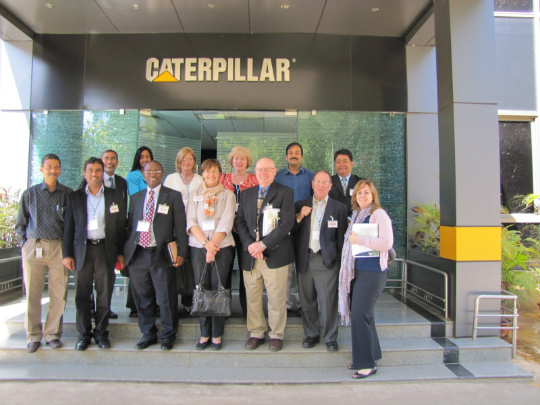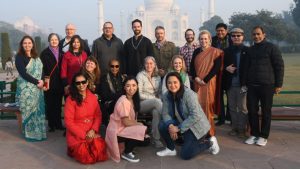Whatever you say about India, the opposite is also true. That observation, often heard in this South Asian country of sharp contrasts, applies to everything from business life to cultural components.
From January 3-10, 2012, the Center for International Business Education and Research (CIBER), part of the College of Business Administration at Florida International University (FIU), conducted its fourth annual Faculty Development in International Business (FDIB) program to India. Sumit K. Kundu, professor and Knight Ridder Research Professor of International Business, and Sonia Verdu, CIBER associate director, led the trip.
In Bangalore and Mumbai, nine academics from the United States and one from Hungary visited multi-national corporations—IBM India Private Limited, Infosys Limited, Mphasis Limited, Caterpillar India Limited, Siemens (India) Limited and GlaxoSmithKline Pharmaceuticals Ltd.—where they met with top executives.

“To learn firsthand how world-class companies operate in India benefits me as an international business professor,” said Fred Hoyt of Illinois Wesleyan University. “Marketing to the top two percent of the Indian population has not been a sustainable strategy for most companies. The goal is now to reach the 70 percent who are not yet middle class, by offering the highest quality possible at affordable prices.”
The group enjoyed a wealth of cultural opportunities including Indian dining. Visiting the Bull Temple, the botanical gardens of Lai Bagh, the Elephant Caves, the Jain Temple and other locations also contributed to a memorable trip.
Group gets insight on how India copes with poverty.
With the second largest population on earth, India has enormous struggles as the group saw in Mumbai where they toured Dharavi, the largest slum in Asia. But they also learned about Dharavi’s small-scale industries.
The trip included a visit to Akshay Patra in Bangalore, a non-governmental organization providing lunch for millions of school children.
“This was an eye opener for the group,” Kundu said. “Millions of Indian children only eat once or twice a day. Akshay Patra prepares meals in its mechanized facilities to deliver to several schools in Bangalore, thus encouraging school attendance, the best way out of poverty.”




